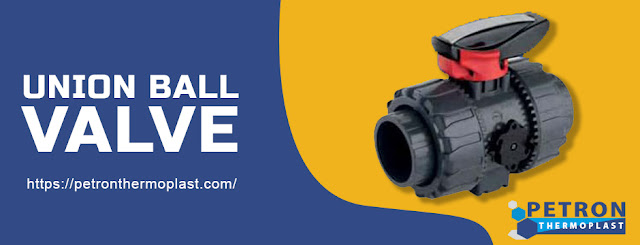Although there are many different kinds of plumbing valves, metal and plastic valves are the two most used. While metal has traditionally been preferred because of its durability and strength, plastic is becoming more common in a wide range of applications. Why? Installation is made much simpler by the use of plastic because it is less expensive, won't corrode, and is easier to handle. Additionally, plastic lasts longer than other materials and requires little to no upkeep.
You might be wondering why someone would choose anything other than the PVDF ball valve given all of these benefits. Make sure you choose the right material for the job because plastic works best in specific systems and conditions. If you don't, your valve can be damaged, which would cause the entire system to stop working. But there are a few instances where plastic can successfully take the place of metal. Now let's look at these.
What circumstances allow me to substitute a PVDF ball valve for a metal valve?
Before deciding to immediately choose plastic plumbing valves over metal ones, take into account the following factors:
• What temperatures and pressures will be applied to the valve? Due to its excellent heat resistance, metal is widely employed. You should ensure that the material you choose can withstand high temperatures and pressure because some varieties of plastic valves are also heat-resistant.
What are the chances of producing shock pressure? For example, it is not advised to damage plastic with water hammers. Using durable plastic valves of excellent quality can help you avoid this issue!
• Check your level of chemical resistance. If chemicals come into contact with plastic, will they be able to survive? Today's plastic valves are often sturdy enough to tolerate chemical exposure.
• Do you need a fix that will work for a few months to a few years? Plastic valves do not rust, corrode, or pit like metal valves do. Additionally, they have an extremely smooth interior lining with a high flow coefficient that keeps constant flow rates throughout time.
• Will the plastic part be subjected to any stress? As this is the most frequent reason for installation failure, ensure that the component will never be under tension, not even while it is in use. The misalignment of the flanges and the valve within the metal system are warning signs to watch out for.
In relation to the Petron PVDF Dual Block 2-Way Ball Valve
The greatest heavy-duty ball valve quality for the water and wastewater industries, as well as the best heavy-duty ball valve series for the agricultural industries, is Petron Thermoplast's PVDF Dual Block 2 Way Ball Valve Series. The Dual Block Series is a line of PVDF ball valves we offer. A Dual Block 2-Way Ball Valve is one that seals off pressure from both ends using two sitting surfaces made of PVDF.
The fluid's characteristics, pressure, and temperature must all be taken into account while choosing a valve. On the other hand, the valve's intended use may be the most crucial factor. You can choose from a variety of settings depending on your procedures, your goals, and the needs of your industrial water application. The P2 Valve excels in operational circumstances where vibration or thermal expansion may jeopardise the performance of the standard thanks to the PVDF Dual Block 2-Way Ball Valve technology. Under rigorous service conditions, a patented union-nut locking system prevents back-off. No specific tools are needed to set up the system, which is straightforward.






No comments:
Post a Comment